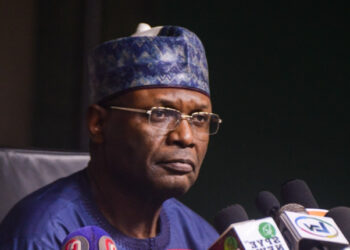The Lagos state chapter of the All Progressives Congress (APC) has kicked against the elongation of the tenure of the party’s national and state executives, saying it is against the constitution.
Rising from a consultative forum held at state house Marina, Lagos and attended by party elders from across the state, the leaders said the extension of the tenure of John Oyegun, chairman of the party, and his executives by one year is also against Nigeria’s constitution.
“Section 223 of the 1999 constitution as amended provides for periodical election on a democratic basis for principal officers and members of the executive committee of political parties,” the party said in a statement.
“According to the constitution, election of the officers or members of the executive committee of a political party will be deemed to be periodical if done at regular intervals not exceeding four years.
“Article 17 of the party’s constitution also provides for a four-year tenure for its national and state executives, which is renewable for another four years.”
Tajudeen Olusi, leader of the party in Lagos central senatorial district, later addressed reporters.
We have taken reports of the state APC chairman in respect of the NEC meeting held in Abuja. We have also had the privilege of receiving great reports from our leader from the reconciliation committee,” he said.
“We have considered the issue of extension of tenure and we are of the firm belief that the decision is a breach of the constitution of our party and of the country. We are against the elongation of tenure. We shall continue to make our decision known to the party and to the president.
“In extending the tenure, the APC National Executive Committee had relied on Article 13.3 (ii) of its constitution which states that The NEC can discharge the functions of the convention in a period of emergency.
Article 13.3 (ii) of APC Constitution specifically states that the NEC of the party is empowered to;
“Discharge all functions of the National Conventions as constituted in between Conventions”.
“But the provision in Article 13.3 (ii) is not limitless and open-ended. It is a responsibility restricted by the same constitution, which provides exclusively under Article 30 (i) that: “This Constitution and Schedules hereto can be amended only by the National Convention of the Party.”








